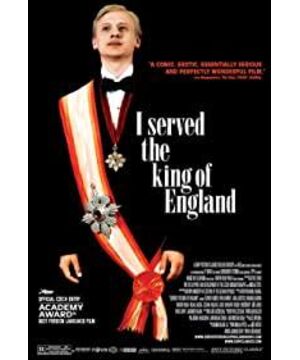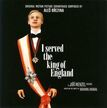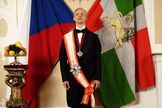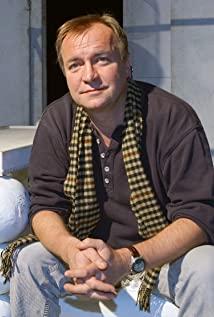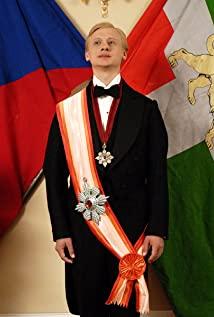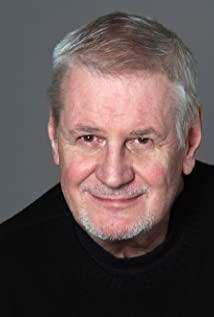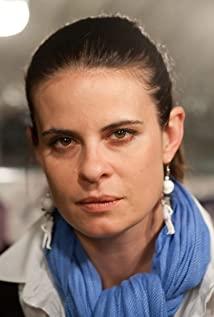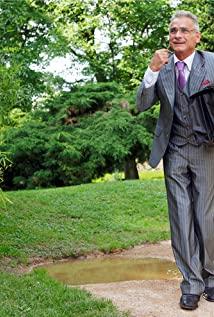In 1968, the Czech political situation changed, and the Czech writer Hrabal, who was implicated, fell into a low point in his life. His books were pulled from bookstores, his forthcoming books were destroyed as waste paper, and he was even expelled from the Czech Writers' Association. He became disheartened and at one point had thoughts of suicide. In order to help him relax, his wife bought a small wooden house in a clearing in the outskirts of Prague. The two escaped from the chaotic world affairs and lived a life almost isolated from the world. This kind of life made Hrabal calm and gave him an epiphany. In the quiet time, he would go to the tavern at the foot of the mountain to have a beer and chat with fellow villagers. Life presents a simple beauty. But compared with this tranquility, Hrabal always felt an irrepressible creative impulse. Past events and memories came to his mind together, accidental and inevitable, lucky and unfortunate, an indescribable feeling made him hesitate.
The old manager of the Blue Star Hotel in Satska Town, the small owner is one of Hrabar's many friends. Listening to the little boss bragging is everyone's fun. In the process of changing the cup, the little boss starts to tell his legendary past, "When I was the general manager, I served so-and-so" - this almost became The petite boss's bragging mantra. In the story of the little boss, Hrabar suddenly found a key to open his memory warehouse. The image of the small boss, his self-satisfied and self-deprecating narrative, all provided Hrabar with a source to rely on. Excellent form. He returned home and couldn't wait to start writing the novel "I served the King of England" on the typewriter.
Hrabar may have already accumulated too many characters, stories and images in his heart. These materials accumulated in the past are rolling, fermenting, and expanding. He is eager to find a form, a structure, and a gesture of language that will make him Express your words and thoughts in your heart. When he saw the little boss, when the form was found, everything seemed so natural and natural. The inner words almost gushed out. Hrabal writes almost driven by words, without thinking, "in a state of light unconsciousness", all he needs is to type very fast, trying to catch up with the pouring words, you can even get out of it In the endless stream of words, it can be seen that Hrabar is in a hurry. He finished the book in one breath, in only 18 days.
After the manuscript was written, Hrabar put it aside, unwilling to touch it again. He seemed to have gone through a painful childbirth. This novel was like a sad story he had stored elsewhere. When it was taken out from his heart, he never wanted to take a second look. Even when the book was published many years later, He didn't make any changes either. The passion in his creation, the rush and the speed, the jumble and randomness, all become a reflection of the real state, which is perceived by the reader when reading.
The creative state of the blowout also allows Hrabar to create a kind of eloquent style. The protagonist speaks eloquently, without subsections for several pages, where he wants to say where he wants, and the narrative jumps arbitrarily between scenes. There is no transition in the switching, and there is a kind of vigor of discourse in the style.
The novel uses the first person to tell his colorful life in the tone of a small restaurant waiter, Tidier. From restaurant apprentice to millionaire, Tidier's life has been between different restaurants. In different restaurants, he met all kinds of people and saw all kinds of unbelievable things, and the most amazing thing is, "those unbelievable things have actually become reality." Tidyr likes to hide behind a beer glass to observe the world, so those people and things, deformed under the refraction of the glass, become exaggerated and funny. At the same time, he himself became unbelievable. He only wanted to be a millionaire, but when his dream came true, he went to jail. Everything seems unbelievable, and good luck always comes with bad luck. In the era of drastic changes, he is like a clown in a circus, thrown up and down, all he can do is make a funny expression when he falls to the point of gnawing mud in his mouth, so as to reap a humorous and optimistic expression. Feeling. In the twilight of his life, Tidier seems to have penetrated the true meaning of life, and has no intention of being a clown in unbelievable times. He has to walk "his own path". He returns to nature, keeps company with animals, and cultivates A road that will never be repaired.
At the end of the novel, Hrabar almost merges with the little waiter. In the same situation, they both live in seclusion in the mountains and forests because of life changes, "searching for the way to the village during the day", and "trying to use letters and writing to ask yourself at night". Own". Hrabar is full of affection, almost expressing his heart directly through the mouth of Tidyr. From it, we can vaguely glimpse his true state of mind when he wrote the novel.
During the summer months of writing, Hrabal "was living in the midst of Dalí's 'imaginary recollection' and Freud's 'repressed impulse to speak out' and to be excited". The stories are fictional, but the emotions are real; the gestures are laughter, but there are tears in the laughter. Behind the eloquence hides his feelings and thoughts on life and the times. After experiencing the changes in the world, on the one hand, Hrabar felt powerless in the face of fate, and on the other hand, he also gained the dialectical thought of "fortune and misfortune are interdependent, luck always accompanies misfortune", he decided to give up those falsehoods that could not be grasped, "Get rid of the false me", back to nature, back to life, back to yourself.
"I Have Served the King of England" has been circulated among readers in the form of manuscripts after its creation, and it was not officially published until 20 years later, and it would not be until 2006 when it was adapted into a film. In 2006, the novel was adapted into a film of the same name by Czech director Elie Manzo. This is not the first time that Elie Manzo and Hrabar have collaborated. He has brought Hrabar's works to the screen several times and won many awards. His interpretation of Hrabar's works is often a combination of form and spirit, which is quite novel.
Adapting this novel into a movie is difficult. Except for the witnesses of the era of the little waiter, there are almost no characters throughout the book, and in the eyes of the protagonist, the people and things he sees are group portraits of an era. Movies can be digested. Moreover, the novel presents a memoir-like sprawl, without concentrated contradictions and conflicts.
Elie Manzo's adaptation is ingenious. The film adopts the same first-person point of view as the novel, and uses a small waiter to run through the whole film and view the world through his perspective. The film makes extensive use of narration—almost the easiest and easiest way to turn literature into film. This setting is very convenient. There are many background explanations and human entanglements. It may be very laborious to display it in images, but in the form of narration, it can be explained in a few words. Through the narration of language, the film can also jump at will between different scenes and characters. This kind of narration is very consistent with the perspective of the memory of the whole film, and there is no sense of redundancy and clumsiness.
After the narrative is handed over to the narrator, the rhythm is handed over to the music. The main passages of the film are almost always accompanied by music. Whether it is Zhuang or harmonious, the music renders the atmosphere of the scene, and also paints the film with gorgeous stylized colors. The music completely dominates the rhythm of the film, so under the control of the narration and the music, what is presented to the audience is a collection of fragments of life.
There is Chaplin's temperament in the heart of the novel. Hrabar once said: "I naively thought from childhood that my role model for being a citizen was Chaplin. Always, I laughed at Chaplin's burlesque, and I went to see it again and again. , the number of laughs gradually decreased, and eventually I became serious and could not laugh. This is my humor, with a slight smile, but in the end it is sad."
Elie Manzo simply borrowed Chaplin's silent performance. method, which is probably the best way to deal with fiction. Because there is no fierce conflict in the novel, there are only colorful pictures and those unforgettable moments. The scene of the little man selling sausages at the train station is directly presented in silent film, and the black and white video is subtitled, as if to pay tribute to Chaplin. With fewer lines and dialogues, exaggerated body language, witty mise-en-scene, and downgrades, the director uses silent films to create comedy and bring out the drama of life. In several passages such as the Tiheta Hotel and the reception of African kings, the ingenious scene arrangements and the dancing people, under the background of music, are simply a carnival of images.
The structure of the film is very similar to that of The Last Emperor, and it is also a structure commonly used in many biographical films. The film is divided into two parallel lines, one is the present tense, which shows the life of the little old man in the woods after his release from prison; the other is the past tense, where the memories of the past are interspersed. The two lines advance at the same time, eventually meeting and overlapping at the end of the film.
In response to the miscellaneousness of the original book, the film has made some simplifications. The many places where the protagonist turns in the novel are simplified to four. Numerous characters have been reduced to a limited number. Zdenek, a very important character in the original work, has disappeared, and the role of the foreman Sksyvanek has been increased, while the fat businessman Walden has become the only character that runs through. . The director added erotic scenes to make the film more sensual. Every time a new environment comes, a new woman will appear, and these changing hotels and women have strung together the life of the little man. Some of the more profound plots, such as the mentally handicapped child he and his German wife gave birth to, and his reflections and confessions about himself, were discarded. In the original book, the protagonist's helplessness in the torrent of the times was bumped and displaced, but in the movie, it is more shown as a clever and calm. These all weaken the tragic color of the fate of the characters.
Adapting a novel into a movie, where the same story is transplanted into a different art form, is always a bit of a rejection. The adapted film is either far from the original, or loses its own purity and integrity because of the original. Eli Manzo's adaptation is excellent, finding the best balance between the two. However, compared with the original novel, the movie still seems a little superficial. After all, the large number of psychological monologues and ideological expositions in the novel cannot be literally translated into images, which will inevitably weaken the depth and thickness of the movie.
When the filming was completed, Hrabar had been dead for 10 years, and he had no chance to see the novel turned into a moving image. It was a pity, would he be satisfied with the film? Maybe satisfied or disappointed, after all, no live movie can interpret the wonderful heart of a writer.
View more about Obsluhoval jsem anglického krále reviews


